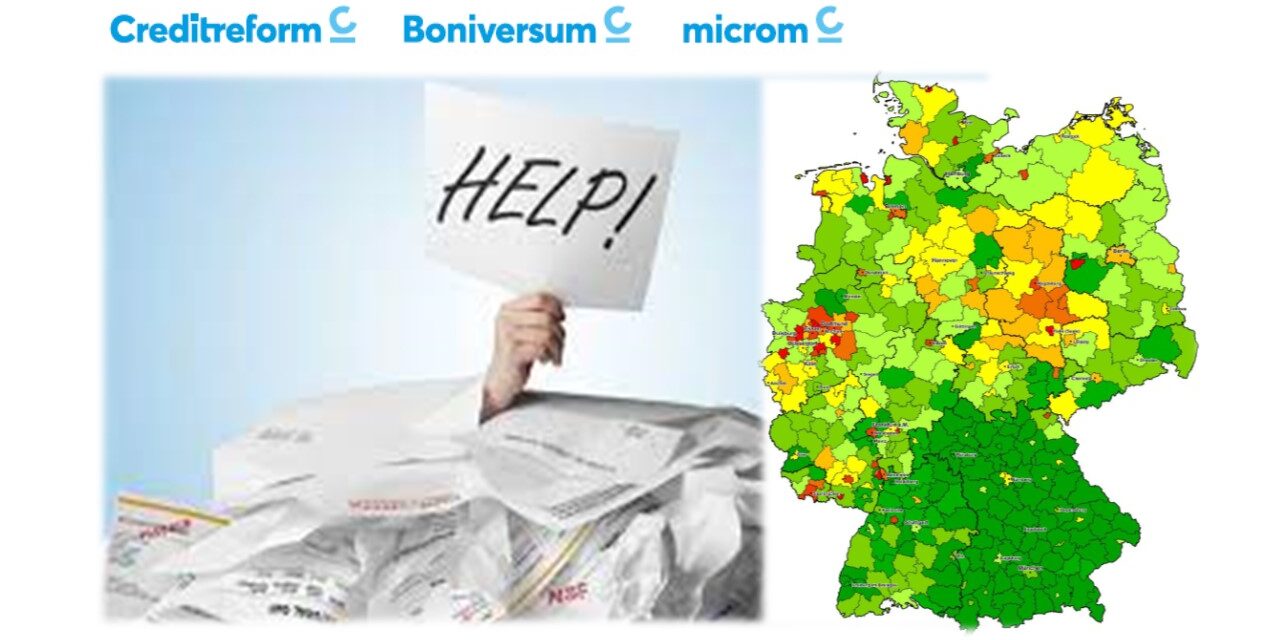During the pandemic, many were able to reduce their debt and save. But now the credit has been used up. Inflation and energy costs are driving debt back up.
The number of over-indebted people in Germany has fallen this year – but the development is deceptive, according to the credit agency Creditreform. Increasing prices for energy and food will probably soon make the situation noticeably worse.
Creditreform presented the “Debt Atlas Germany 2022″ on Tuesday (15/11/2022). Accordingly, there were “only” just under 5.9 million people in the Federal Republic whose total expenditure exceeded income. That is almost 4.4 percent or 274,000 fewer than last year.
In concrete terms, over-indebtedness means that there is a high probability that a person will not be able to pay off their consumer and construction loans as well as other liabilities over a longer period of time.
 Patrik-Ludwig Hantzsch, Head of Economic Research at Creditreform, warns: “Unfortunately, the good numbers are deceptive.” Since the beginning of the corona pandemic, people have spent less money and government aid programs have protected many consumers. This explains the decline in overindebtedness. But the trend reversal is already foreseeable. Hantzsch explained: The decline in over-indebted people is already slowing down. The real burdens will be persistently high inflation and, in particular, rising energy costs, which are still far from being fully felt by consumers. The consequences of the price increases would only be delayed and would have a long-term effect on over-indebtedness. “The savings accumulated in the corona crisis have often been used up again,” says Hantzsch. This is mainly the case for people with low incomes, who cannot put much on the high edge even in normal times.
Patrik-Ludwig Hantzsch, Head of Economic Research at Creditreform, warns: “Unfortunately, the good numbers are deceptive.” Since the beginning of the corona pandemic, people have spent less money and government aid programs have protected many consumers. This explains the decline in overindebtedness. But the trend reversal is already foreseeable. Hantzsch explained: The decline in over-indebted people is already slowing down. The real burdens will be persistently high inflation and, in particular, rising energy costs, which are still far from being fully felt by consumers. The consequences of the price increases would only be delayed and would have a long-term effect on over-indebtedness. “The savings accumulated in the corona crisis have often been used up again,” says Hantzsch. This is mainly the case for people with low incomes, who cannot put much on the high edge even in normal times.
The Munich ifo Institute had already pointed this out in August in the study “Inflation eats up surplus savings”. Since the end of last year, private households have increasingly resorted to the “large deposits that they accumulated in their bank accounts during the corona crisis”. Despite record inflation, consumption was expanded in the first half of 2022. But the savings cushion has now been used up.
 Rising consumer prices are now putting more pressure on people in Germany. According to calculations by the Creditreform subsidiary Microm, up to 19 percent of German households run the risk of not being able to pay their bills for electricity, water, gas and heating immediately. Around 7.8 million households or 15.6 million people are affected, explained Microm Managing Director Michael Goy-Yun. Goy-Yun added that German society is facing a turning point in terms of over-indebtedness: poverty in old age and over-indebtedness in old age go hand in hand. We also find that energy poverty and energy over-indebtedness also correlate with each other.
Rising consumer prices are now putting more pressure on people in Germany. According to calculations by the Creditreform subsidiary Microm, up to 19 percent of German households run the risk of not being able to pay their bills for electricity, water, gas and heating immediately. Around 7.8 million households or 15.6 million people are affected, explained Microm Managing Director Michael Goy-Yun. Goy-Yun added that German society is facing a turning point in terms of over-indebtedness: poverty in old age and over-indebtedness in old age go hand in hand. We also find that energy poverty and energy over-indebtedness also correlate with each other.
The study had shown that younger people in particular were able to quickly reduce their over-indebtedness during the corona pandemic. In contrast, the over-indebtedness rate among older people, aged 60 and over, fell only slightly.
In the coming year, the number of over-indebted people could increase significantly. “An increase in over-indebtedness by around 600,000 cases is not unrealistic,” says the debtor atlas. It can also not be ruled out, that the number will continue to increase when the additional payments for heating and energy costs become due.
 Source: [German language], creditreform; heise.de
Source: [German language], creditreform; heise.de


























